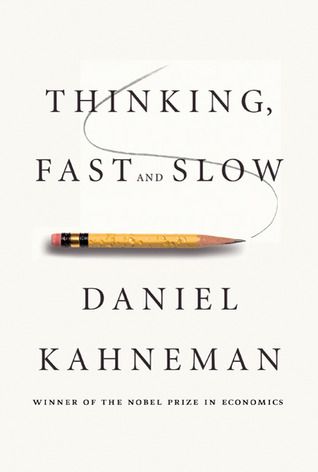Do not think this book need any introduction. Definitely a classic. I have this book for a while now but have not read it because there were other books that caught my attention. Sounds ironic right since I called it a classic.
I decided to pick up the book at the start of this year because of the Keynote Address given by Yoshua Bengio at last year's NeurIPS. If you have not caught the keynote, here is a YouTube video on it. Its strongly recommended to anyone who is in the same field as me, Data Science & Artificial Intelligence.
Coming back, the book took 6 weeks to complete with 38 chapters long and each chapter by itself is gold. I have learnt tremendously from it. A lot of examples was given to accentuate the theories Prof Daniel wants to present but I felt they can be written in a better way to let readers better understand it.
Basic premise is that there are 2 systems of thinking in our mind, System 1 that is fast and is the result of learning from humanity's past and System 2 oversees System 1 to ensure the human make lesser mistakes (so to speak!). Turns out we can have more errors in how we see things. And also the book pointed out the flaws of some older psychology theory.
Here are some terms, you may want to Google for and determine if you want to read the book. They are regression to mean, law of large numbers, prospect theory, experiencing and remembering self, planning fallacy etc.
It is a strongly recommended read for anyone who is into Behaviroural Economics and Psychology. Or if you just want some to understand what are the possible blind spots in our thinking, this is a great book too!
Since it is a classic, it definitely warrant a 5 out of 5 stars. Enjoyed it and my next headache is when shall I re-read to gain more insights and understanding.
